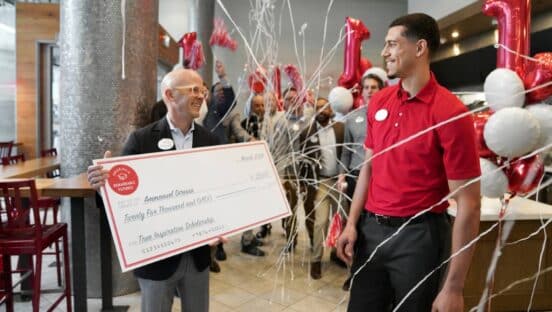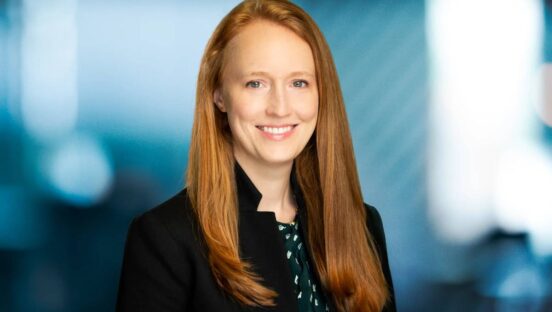Just last year, women crossed the 50 percent threshold in the U.S. workforce, and for the first time in history represent the majority of working Americans. Even in our own industry, more than 50 percent of restaurants are now owned by women—a statistic released by the National Restaurant Association just last month.
While women’s accomplishments in the professional and collegiate world are undeniable (for every two men earning a post-secondary degree, three women are graduating), the fact remains that only 2 percent of bosses at America’s largest companies are women.
But the restaurant industry has always been a diverse segment of the private sector and as Scott DeFife, executive vice president for policy and government affairs at the NRA, says, “The numbers are impressive—more women and individuals of diverse backgrounds are becoming restaurant entrepreneurs or are pursuing lifelong, successful careers in the industry.”
Below are eight such women. They are the leading women in the quick-service industry; those whose professional reach and industry respect extends far beyond their brands and, most importantly, beyond their gender.
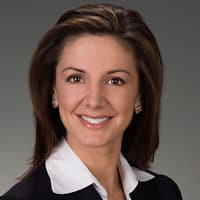
Kat Cole
President of Cinnabon
Long before she became president of Cinnabon in January, Kat Cole began her career in the restaurant industry as a hostess at Hooters when she was 17 years old. Within two years, she was training staff in Australia, and she became a vice president at the age of 26.
“I personally had unique opportunities [at Hooters] that I might not have gotten at another concept,” Cole says.
Besides presiding over Cinnabon, Cole is on the Georgia Restaurant Association’s executive committee and the Women’s Foodservice Forum’s board of directors. She says taking over Cinnabon was “exciting, but harbored with the realization of how much responsibility comes with taking over such an established brand with such a diverse franchise community.” Her primary goals as president are to grow the company’s franchise base and “protect and grow” its brand.
Coming up as a woman in the restaurant industry, Cole says she received a lot of help along the way—from men and women—who wanted to see her succeed.
“It’s amazing the amount of support I have gotten and the amount of advocates there are for young women to move up in business,” she says. “All you have to do is accept their generosity.”
Cole’s advice for young women hoping to climb through the ranks of the restaurant industry today: “Don’t make it about gender.
“If you think your success or lack thereof is about anything other than adding value to the stakeholders of the business, you are mistaken,” she says.
It’s also about figuring out ways to achieve the improbable.
“I don’t like being told why things can’t be done,” Cole says.
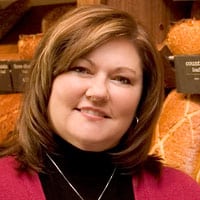
Rebecca Fine
Chief People Officer of Panera
As chief people officer of Panera Bread, which operates about 1,450 bakery-cafes, Rebecca Fine helps oversee the hiring of about 25,000 people per year. She took the position in 2004 after working in the same capacity for Seed Restaurant Group, operator of Fazoli’s Italian Restaurants.
Fine started in the restaurant industry as an hourly employee and manager, experiences she says were “invaluable in forming my leadership style and my ability to relate to the people who touch our customers every day.
“I am not afraid to jump in and help out during a breakfast or lunch rush,” Fine says, “and I have found that working side by side with our associates is the best way to learn how they really feel about working for us.”
Chairman of Winning Women and a Women’s Foodservice Forum member, Fine says she never attributed any of the obstacles she encountered in her career to her gender.
“There have been several situations where I was the only woman in the room where I wondered why that was, so I take my responsibility as a role model for other women very seriously,” she says.
Fine advises women with aspirations of climbing the ranks of the restaurant industry to prioritize their time—“Not everything on your plate carries equal weight” —as well as to “take some risks and assume challenging assignments.”
“Also, don’t take yourself too seriously, and keep a sense of humor when the going gets tough,” she says.
As an executive, Fine places high value on consensus building and collaboration. She credits her days as a volleyball player in high school and college with teaching her the importance of teamwork.
“I loved how everyone had to work together to get the win,” she says.
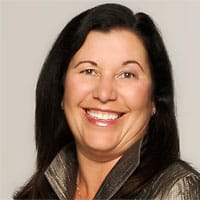
Linda Lang
CEO and President of Jack in the Box
Linda Lang started out in accounting and finance at Jack in the Box 24 years ago. Now she is CEO and president of the San Diego-based chain, which has 2,200 restaurants in 19 states. During her tenure, Jack has added 200 restaurants, refranchised 738 locations, and increased franchise ownership from 25 percent to 61 percent.
[pagebreak]
Besides running Jack, Lang helps oversee California’s 23-university system as an appointee to the state’s University Board of Trustees. She credits her rise as a businesswoman to the support of mentors and her own willingness to seize opportunity when it arose, something she recommends to anyone looking to make headway in the restaurant industry.
“This can be difficult because it may involve moving to a position outside of their comfort zone,” Lang says, “but the learning and development will be helpful as they move up in the organization.”
To women specifically, Lang adds another recommendation.
“I would also encourage women to pursue recreational interests, like golf,” she says. The sport is “mentally challenging, fun, humbling and a great way to … really get to know your business partners.”
“The corporate world is not yet gender neutral,” Lang says, pointing out the low percentage of women in California’s “executive suites and boardrooms.” But she says her gender never hindered her own career.
“I don’t think being a woman made it any more difficult to become CEO,” she says. “Throughout my career I worked hard to build trust and credibility among everyone I worked with.”
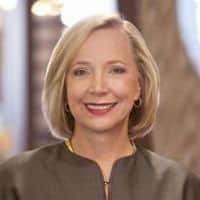
Jan Fields
President of McDonald’s USA
Jan Fields began her McDonald’s career as a 23-year-old fry cook and now oversees 14,000 Mickey D’s and hundreds of thousands of employees in the U.S.
Since joining McDonald’s more than 30 years ago, she has worked at all levels of the quick-serve giant, including executive vice president and COO—the first woman to hold that position in McDonald’s history. Along the way she received the Women Operators Network Recognition Award and the Women’s Leadership Award, and she was named to Forbes’ World’s 100 Most Powerful Women list in 2008 and again in 2009.
“Although the early years were more challenging because there were fewer women in leadership positions, throughout my career at McDonald’s I have received the support of colleagues,” says Fields, whose advice to others in the industry is to give your current job, no matter the title, your best effort.
Fields has been credited with McDonald’s foray into the specialty coffee market and, according to the company’s CEO Jim Skinner, she “epitomizes the very best values of [the McDonald’s] system,” explaining that Fields’ commitment to franchising, continuous improvement, and putting customers at the center of everything the company does has helped drive customer satisfaction and value for the brand.
“Jan has been my trusted colleague in leading our U.S. system,” Skinner says, “and I know she has the complete respect and total support of our owner-operators, suppliers, and staff.”
While Fields’ accomplishments at McDonald’s make her one of the top decision makers in the industry (male or female), her greatest achievement may still lay before her. In 2007, Crain’s Chicago Business said, “She could be the strongest female contender yet for the McDonald’s CEO spot.”
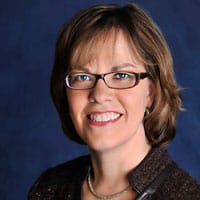
Cheryl Bachelder
CEO of AFC Enterprises, Inc., and President of Popeyes Louisiana Kitchen
In 1993, Cheryl Bachelder was hired by Tom Monaghan to be vice president of marketing and product development for Domino’s. “I was drawn to the opportunity to work for Tom, market a great brand, and learn the retail food business,” she says.
It was a first for both parties—the first quick-serve team Bachelder had ever joined, and the first female executive that Monaghan had ever hired. But now, more than 25 years later, Bachelder is CEO of AFC Enterprises, Inc., and president of Popeyes Louisiana Kitchen (she was appointed to the position in 2007). During her time with the company, she has reinvigorated the Popeyes brand with a new marketing campaign, a new logo, and several new product launches, among other initiatives. But her impact on the quick-serve industry began before she was chosen to head the company.
In 2004, she published a research study based on Gallup data that proved staffs made up of 50 percent men and 50 percent women deliver the highest performance results. “I’ve always believed that teams with different experiences, skills, and perspectives would generate the best results,” she says. “I also believe that women perform the best when there are more than one of them in a room.”
In 2009, Bachelder was appointed to the board of directors for the National Restaurant Association, where she hopes to help cultivate the next generation of industry leaders—whether they’re male or female.

Susan Shields
Chief Marketing Officer of Jamba Juice
Not many quick serves can count Kate Hudson and the Kardashian sisters as fans. But Jamba Juice can—thanks in large part to the health-conscious image that Susan Shields helped the brand cultivate. Shields has been the company’s chief marketing officer since November 2009 and was its vice president of consumer products, licensing, and growth initiatives before that.
[pagebreak]
Besides luring celebrity customers, Shields has helped Jamba accomplish another difficult task: helping the company transition into a complete lifestyle brand while ensuring that it stays true to its core line of products. Jamba was founded in 1990 as a smoothie concept but now sells additional items such as oatmeal, flatbreads, hot teas, and coffee—all of which Shields helped launch. In addition, it has introduced various retail products, including a toy blender, a line of all-natural smoothie kits, frozen sorbet and yogurt bars, and trail mix.
Shields’s innovative approach and experience with better-for-you foods was key in helping take many of these products from concept to reality. “I’ve been enjoying Jamba as a customer for a long time,” she says. “When you like a brand yourself that much, it’s really amazing to find yourself actually working on the brand.”
Shields’ efforts haven’t gone unnoticed; they earned her a seat on The Organic Center’s Board of Directors last November.
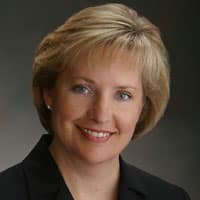
Sally Smith
CEO of Buffalo Wild Wings
For basketball fans across the country, March Madness means one thing: watching the tournament at Buffalo Wild Wings. But before Sally Smith joined the brand as its CFO in 1994, barely anyone outside of Ohio had even heard of the restaurant or its now-famous “secret sauce.”
At the time, the concept had less than 35 locations, most of which were located in the Buckeye State. The company’s corporate structure was minimal, to say the least. So Smith created several departments within the company, including its human resources, finance, and marketing divisions. In the two years between when Smith joined the brand and when she was appointed its CEO in 1996, Buffalo Wild Wings doubled its number of units.
But Smith wasn’t satisfied; she continued to emphasize brand growth and a premium in-store experience, and in November 2003, when she took the company public, she announced the goal of opening 1,000 U.S. locations.
Her strategy has been an effective one; today, there are more than 740 Buffalo Wild Wings restaurants, and the company recently announced plans to expand into Canada as well.
Buffalo Wild Wings locations aren’t the only thing Smith has seen increase during her tenure with the company; she’s also racked up a number of awards, including the Multi-Unit Foodservice Operators Operator of the Year Award in 2010 and the International Food Manufacturer’s Association’s Gold Plate Award in 2009.
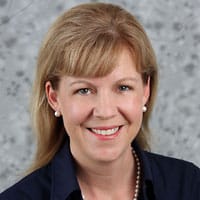
Christine Deputy
Senior Vice President of Human Resources of Dunkin’ Brands
Her job description says she’s responsible for employee recruitment, training, compensation, benefits, leadership and development, policy development, and employee health and wellness at Dunkin’ Brands’s corporate level. But as far as Christine Deputy is concerned, she’s responsible for much more: namely, every single customer-employee interaction that happens in a Dunkin’ Donuts or Baskin-Robbins store.
As the company’s senior vice president of human resources, Deputy determines the hiring and training strategies that shape the entire corporate culture.
“The thing that I really love about this industry is the impact that the people have on the actual business and the impact the culture has on that connection with the consumer and on the brand,” Deputy says. “It’s a very, very people-heavy environment, and at least in the human resources arm of it, you can have a really big impact on people and ultimately on the business.”
Deputy’s work affects more than just the brand and its customers, though. Just as important to her are the quick-serve employees themselves—whether they work for Dunkin’ Brands for a few months or for the rest of their careers.
“Sometimes folks look at this industry and go, ‘I’m not really sure how that could prepare me for a career and how it could help me grow as a leader,’” she says. “I’d like to continue to role model that this is an industry that truly develops great skills and capabilities in people.”






